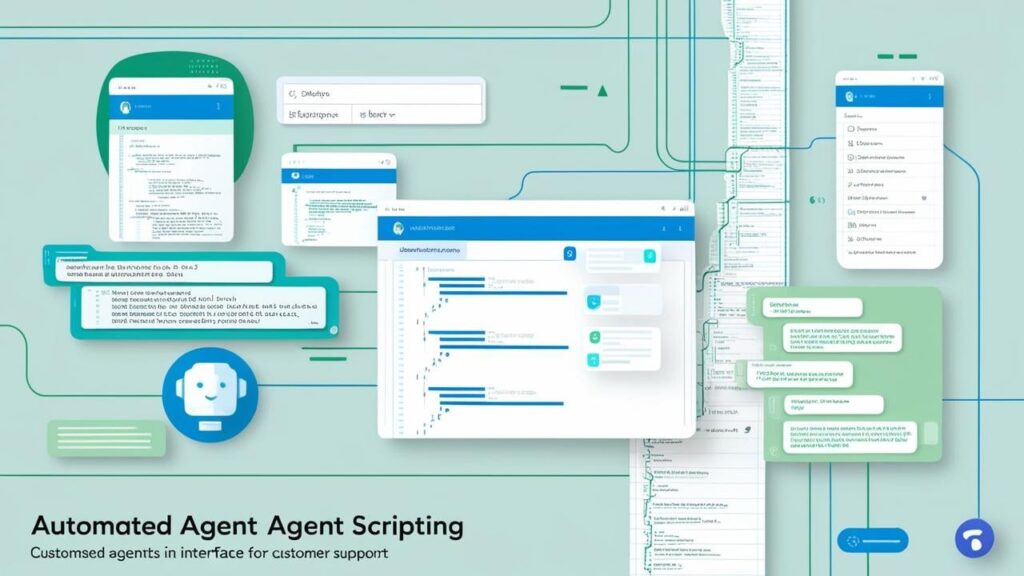
What Is Agent Scripting? BPO Edition
Imagine a customer service agent handling 100+ calls daily, each requiring flawless communication, quick problem-solving, and strict adherence to compliance rules. Now picture them doing it without a roadmap. Chaos, right? That’s where agent scripting comes in—a game-changer for Business Process Outsourcing (BPO) teams. In this guide, we’ll break down what agent scripting is, why it’s the backbone of modern BPO operations, and how platforms like Process Shepherd turn rigid scripts into dynamic, profit-boosting tools.
Agent Scripting Defined: The BPO Lifeline
Agent scripting is the use of pre-written guidelines, prompts, and decision trees to standardize customer interactions in call centers or BPO environments. These scripts ensure agents:
- Deliver consistent brand messaging.
- Resolve issues efficiently.
- Stay compliant with industry regulations (e.g., GDPR, HIPAA).
For example, a script might guide an agent through a billing dispute:
Step 1: Apologize for the inconvenience.
Step 2: Verify the customer’s account details.
Step 3: Offer solutions (refund, discount, escalation).
Without scripting, one agent might skip verification, while another forgets to apologize—leading to uneven experiences.
Why Agent Scripting Is Non-Negotiable for BPOs
BPOs handle everything from tech support to healthcare hotlines, often for global clients. Here’s why scripting isn’t just helpful—it’s essential:
1. Ensures Compliance & Reduces Legal Risks
BPOs dealing with sensitive data (e.g., credit card info, medical records) can’t afford slip-ups. Scripts bake compliance into every interaction:
- Auto-redact sensitive data in chat logs.
- Mandate privacy disclaimers.
A healthcare BPO, for instance, might use scripts to ensure agents never disclose patient info without authorization.
2. Trains Agents Faster
New hires can take months to master complex processes. Scripts act as training wheels:
- Provide real-time prompts during calls.
- Standardize responses for common queries.
With Process Shepherd, scripts even adapt to an agent’s skill level, offering beginners extra guidance while letting experts skip basics.
3. Boosts Customer Satisfaction (CSAT)
43% of customers ditch brands after just one bad service experience. Scripts prevent this by:
- Eliminating “umms” and awkward pauses.
- Ensuring accurate solutions every time.
Traditional Scripting vs. Modern Agent Scripting Tools
Old-school call centers relied on paper scripts or static PDFs. Today’s BPOs need smarter solutions. Here’s the difference:
| Feature | Traditional Scripting | Modern Tools (e.g., Process Shepherd) |
|---|---|---|
| Flexibility | Rigid, one-size-fits-all | Dynamic, adaptive pathways |
| Integration | Manual data entry | Syncs with CRM, ticketing systems, AI |
| Analytics | Limited to call logs | Real-time sentiment analysis, KPIs |
| Updates | Days to implement changes | Edits go live instantly |
For example, Process Shepherd lets managers update scripts mid-shift if a client changes protocols—no downtime required.
7 Ways Agent Scripting Transforms BPO Performance
- Slash Average Handle Time (AHT): Guide agents to resolve issues in fewer steps.
- Reduce Human Error: Auto-populate fields like order numbers or account IDs.
- Scale Multilingual Support: Instantly translate scripts for global teams.
- Improve Upselling: Embed product recommendations based on customer history.
- Monitor Quality Assurance (QA): Flag deviations from scripts in real time.
- Empower Self-Service: Let customers resolve issues via chatbots using scripted flows.
- Boost Agent Morale: Reduce stress with clear guidelines and fewer judgment calls.
How Process Shepherd Elevates Agent Scripting
Process Shepherd isn’t just another scripting tool—it’s a workflow revolution. Here’s how it solves common BPO pain points:
Pain Point 1: “Scripts Feel Robotic”
- Solution: Add branching logic to personalize interactions.
- Example: If a customer is angry, the script shifts to empathy-focused language.
Pain Point 2: “Compliance Is a Nightmare”
- Solution: Automate compliance checkpoints.
- Example: Scripts block agents from proceeding until they read a mandatory disclaimer.
Pain Point 3: “Training Takes Too Long”
- Solution: Use AI to simulate customer scenarios for practice.
Try Process Shepherd’s free trial to see how 100+ BPOs cut AHT by 35% in 30 days.
FAQs About Agent Scripting in BPO
Can agent scripting handle complex customer issues?
Absolutely. Advanced tools like Process Shepherd use decision trees to manage multi-step processes, like insurance claims or tech troubleshooting.
Do scripts make agents less empathetic?
Not if designed well. Great scripts balance structure with flexibility, allowing agents to adjust tone based on context.
How do you measure scripting success?
Track KPIs like First Call Resolution (FCR), CSAT scores, and compliance audit results.
Is scripting only for voice calls?
No! Use scripts for live chat, email, and social media interactions too.
Can scripts integrate with existing CRM systems?
Yes—Process Shepherd syncs with Zendesk, Salesforce, and more.
What’s the cost of agent scripting software?
Prices vary, but Process Shepherd offers scalable plans for teams of all sizes. Get a quote.
Conclusion: Script Smarter, Not Harder
Agent scripting isn’t about turning humans into robots—it’s about empowering them to focus on what humans do best: building rapport, solving puzzles, and delivering memorable service. With AI-driven tools like Process Shepherd, BPOs can automate the mundane, nail compliance, and keep customers coming back.
Ready to transform your call center?
👉 Start your free trial of Process Shepherd today.
👉 Book a demo to see live scripting magic.
PS: Still using clunky, static scripts? You’re wasting time and money. Let Process Shepherd show you a better way.



